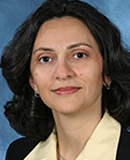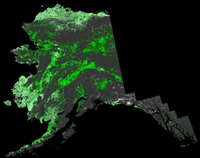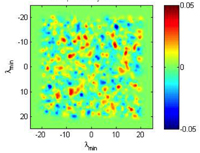Prof. Mahta Moghaddam honored with U-M Faculty Recognition Award
This award recognizes faculty who have demonstrated significant achievements in scholarly research; excellence as a teacher, advisor and mentor; and distinguished participation in service activities.

 Enlarge
Enlarge
Prof. Mahta Moghaddam, professor of electrical and computer engineering, has been honored to receive a University of Michigan Faculty Recognition Award. This award recognizes faculty who have demonstrated significant achievements in scholarly research and/or creative endeavors; excellence as a teacher, advisor and mentor; and distinguished participation in the service activities of the University.
Prof. Moghaddam excels in all areas of research, teaching, and service.
She is a world leader in subsurface sensing and imaging, and has developed sophisticated techniques for environmental sensing. This includes characterizing the subsurface structure and moisture profile of soil – for both bare and vegetated surfaces, and characterizing Earth’s land-cover types and properties. Her research is multidisciplinary, using engineering tools and physics-and-math based theories to solve problems that are critical for understanding climate change. She is also PI on a $26M NASA Earth Venture airborne Radar Mission, leading the effort to build the instrument and algorithms for subsurface and root-zone mapping.

 Enlarge
Enlarge
In the area of medical imaging her research group has developed algorithms for high-resolution detection of tumors using microwave techniques. Her group is also developing a microwave/ultrasound tumor ablation system with the goal of one day providing a noninvasive and improved method for treating cancer.
Prof. Moghaddam’s excellence as a teacher has been acknowledged with a 2009 College of Engineering Education Excellence Award. To highlight some of her accomplishments, she receives extremely high student evaluations for her teaching; she regularly mentors undergraduate students by engaging them in research projects; and she maintains a large and diverse graduate student group – several of whom have received prestigious external fellowships. In addition, she contributes to workshops for best mentoring practices in STEM (Science, Technology, Engineering, and Mathematics) fields.

 Enlarge
Enlarge
“Teaching has been one of most rewarding career experiences for me,” she said. “I get to interact with all these very bright students and hopefully make a difference not just by teaching them the class material, but by planting the seeds of scientific curiosity in their minds.” [quoted from a 2010 article in the Michigan Engineer]
Prof. Moghaddam’s exemplary contributions in the realm of service extend from the Department, to the University, and to the professional community. To name just a few current examples, she helped create the junior faculty mentoring program in ECE, and she has been serving as a valued member of the executive committee. She is a member of U-M’s committee on Mentoring Others Results in Excellence (MORE), a member of the NASA Advisory Council, Earth Science Subcommittee, a member of the Administrative Committee of the IEEE Geoscience and Remote Sensing Society, and Associate Editor for the IEEE Transactions on Geoscience and Remote Sensing.
Prof. Moghaddam received the B.S. degree (with highest distinction) from the University of Kansas, Lawrence, and the M.S. and Ph.D. degrees from the University of Illinois, Urbana-Champaign, all in electrical and computer engineering. From 1991 to 2003, she was with the Radar Science and Engineering Section, Jet Propulsion Laboratory (JPL), California Institute of Technology, Pasadena, which she left to join the Radiation Laboratory at Michigan. She received several Certificates of Recognition from NASA, and is a Fellow of IEEE.
 MENU
MENU 
